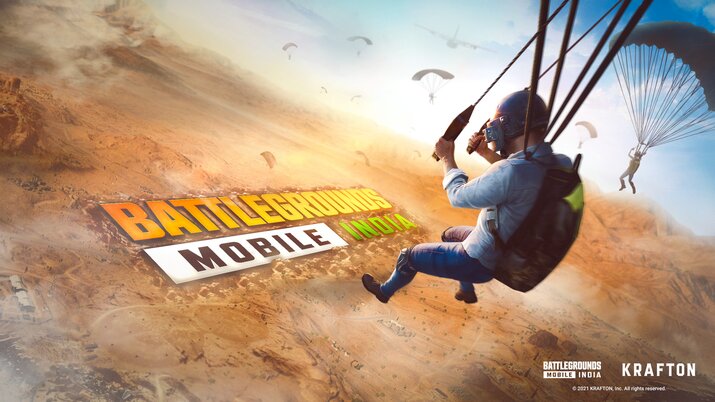The Rise of Cross-Platform Gaming
In the ever-evolving world of gaming, one of the most significant developments in recent years has been the emergence of cross-platform play. This feature allows gamers on different systems—be it PlayStation, Xbox, PC, or mobile devices—to play together seamlessly. Cross-platform gaming not only bridges the gap between various gaming communities but also enhances the player experience by expanding the pool of potential opponents and friends to play with. Let's dive into exploring some of the best cross-platform games you can enjoy with your friends, regardless of the device they are using.
Fortnite: A Leader in Cross-Platform Gaming
Arguably the pioneer of modern cross-platform play, Fortnite by Epic Games broke barriers by allowing players from different platforms to battle it out on a massive scale. The game's success can be partly attributed to its inclusivity, enabling players to connect their Epic account and join friends on PS4, Xbox One, Nintendo Switch, PC, and even mobile devices. Not only does this help in building a community, but it also ensures that friends can play together without the need for multiple console purchases or exclusives.
Minecraft: A Creative Playground
Another titan in the cross-platform arena is Minecraft. Known for its vast, creative landscapes and endless possibilities, Minecraft supports cross-platform play between PC, mobile devices, and consoles. Through the Better Together update, Mojang unified various editions of the game into the Bedrock Engine, allowing players to seamlessly connect across different devices. This update has transformed how players interact with each other, especially when collaborating on massive building projects or exploring randomly generated worlds together.
Call of Duty: Modern Warfare and Warzone
The Call of Duty series has long been a staple in the FPS genre, but with titles like Call of Duty: Modern Warfare and Warzone, the game has embraced cross-play, enabling a larger pool of players. This feature is particularly vital in games like Warzone, where large-scale battles require a substantial player base for quick matchmaking. Here, gamers on PS4, Xbox One, PC, and now PS5 and Xbox Series X|S can battle without boundaries, which has significantly rejuvenated interest in the franchise.
PUBG: Battlegrounds - Highlighting Cross-Platform Play
PUBG: Battlegrounds followed suit after Fortnite, implementing cross-play to ensure that players from different ecosystems could compete in its vast battle arenas. This move was essential for keeping the player base active and engaged, especially as new titles in the genre continually emerge. PUBG offers cross-platform play primarily between Xbox and PC players, with separate lobbies for PlayStation to maintain competitive balance due to differences in controller capabilities.
Among Us: Social Deduction Goes Cross-Platform
The unexpected hit Among Us became a cultural phenomenon partly due to its cross-platform support. This game of social deduction and deceit allows players to join games from mobile devices, PCs, and consoles, promoting an inclusive environment where friends can easily connect regardless of their preferred gaming platform. Its simple interface and engaging gameplay mechanics made it perfect for cross-platform emergence, capturing a wide audience during its peak popularity.
Diablo IV: Reinventing the RPG Landscape
With its upcoming release, Diablo IV promises not only to bring back the dark fantasy experience but also to introduce full cross-platform play between consoles and PC. This approach ensures that players can dive into the terrifying world of Sanctuary together, regardless of their gaming setup. Blizzard's commitment to cross-play for all its online games moving forward points to a future where platform barriers are increasingly less relevant.
The Challenges and Benefits of Cross-Platform Gaming
While cross-platform play improves user engagement and expands the community, it does come with challenges:
- Technical Integration: Ensuring that games work uniformly across different hardware architectures and software ecosystems is no small task. Developers must optimize for varying input methods, performance capabilities, and user interfaces.
- Fair Play: Balancing gameplay between different control schemes (like controllers versus keyboards/mice) to ensure fair competition can be complex.
- Platform Exclusives: Navigating agreements with platform holders who might wish to keep certain content exclusive can sometimes limit the extent of cross-platform features.
However, the benefits are profound:
- Increased Player Base: More players mean shorter wait times for matches and a more lively game environment.
- Unified Communities: Cross-platform play unites players, fostering a larger, more inclusive community.
- Enhanced Longevity: By allowing players on less dominant platforms to match with more popular ones, games can have prolonged lifespans.
Future of Games with Cross-Platform Capabilities
The trend towards cross-platform play is not just a passing fad but represents the future direction of video games. Future titles are expected to not only include cross-play as a standard feature but also push the envelope with cross-progression, where player achievements and progression are shared across all devices they own the game on. This holistic approach could redefine how we perceive our digital gaming identity across platforms.
Conclusion
Cross-platform gaming has already begun to break down the walls that once separated different gaming ecosystems. As we look forward, the gaming industry's commitment to this model will likely grow stronger, encouraging developers to design experiences that are inclusive and accessible to all. For gamers, this means more opportunities to play with friends no matter the device, fostering a richer, more interconnected gaming community. As this technology and philosophy continue to evolve, we can only imagine the new heights that cross-platform gaming will reach.
